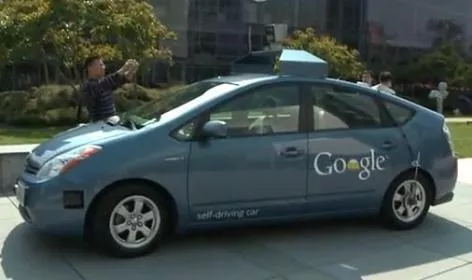
You've heard the adage that we "overestimate what we can do in two years and underestimate what we can accomplish in 10 years." By that token, many of us suffer from "extrapolation syndrome." We project the future by extrapolating today's trends instead of accounting for disruptive changes.
Nowhere is this more evident than in the transportation sector. Most discussions of urban futures assume more of the same -- more today-style cars parking in more today-style parking lots with maybe a little more today-style mass transit thrown in.
In reality, transportation is a half-decade away from the start of a major transformation. That's when several new concepts will mature to the point they will impact cities. Electric vehicles and personal transport pods and instrumented roadways and intelligent parking spaces and computer-optimized traffic synchronization and... and, to the point of this article from The Boston Globe, driverless cars.
If we want to skate to where the puck will be -- if we want to prepare our cities for their true future -- then we owe it to ourselves to stop relying simply on straight-line extrapolations. This article is a good start. -- Jesse Berst
Driverless cars may be a common sight on the Google campus (pictured above) and nearby Silicon Valley roadways, but for many they are still more science fiction than reality. Yet the Globe story points out several ways that driverless cars – which the likes of Audi, Toyota and Mercedes-Benz are all working on – will change cities. Here are a few examples:
- No looping around city streets looking for parking spots; the driverless car drops you off and drives off to wait
- Less need for traffic lights since sensors in cars and on roadways will coordinate traffic
- Streets could be narrower because there's less need for parking spots
- Home prices could decline because there's more space available in cities to build
And though some of the pieces are starting to fall into place, the Globe piece also points to the challenges – describing the regulatory issues alone as "forbidding."
###
Jesse Berst is the founding Chairman of the Smart Cities Council. Click to subscribe to SmartCitiesNow, the weekly newsletter highlighting smart city trends, technologies and techniques.



